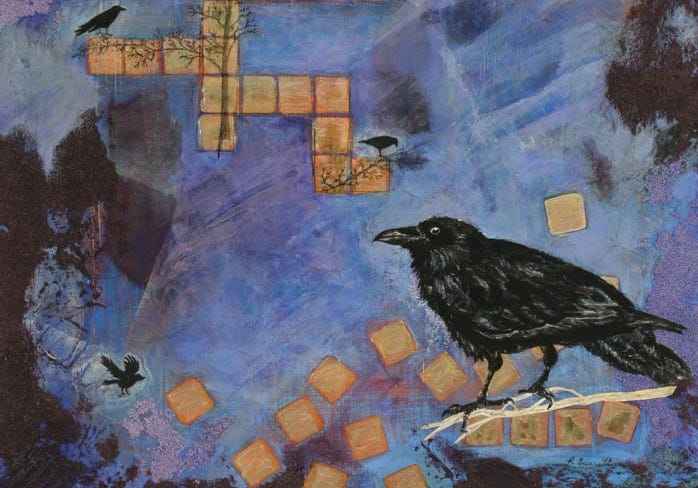FEBRUARY 8—I once won a scrabble game with the word “daizy.” It was such a shocking victory, not least for me, no one noticed I’d misspelled it until hours later when my sister, with justifiable outrage, looked at me and said, “Daisy isn’t spelled with a “z”!
No? Why not?
As a child I was unable to read until well into second grade—or was it third? The humiliation still haunts me. Children then were expected to pick up a book and simply decipher it. I needed a Rosetta Stone and found it when I was put into a phonics class. Two weeks later, I was reading well beyond my grade level and bored to tears with Dick and Jane. To this day I harbor a special loathing for the insipid books.
While my “special ed” class unlocked the mysteries of the written word, it did nothing for my ability to spell. On the contrary. With the power of phonetics in my shiny new toolbox, I could spell any word any number of ways. And delighted in doing so. Until I quickly learned the trouble it caused.
How haunted by elementary school can one aging adult remain? I still recall the shame of weekly spelling bees. We may not have understood it in the 60s, but we certainly know it now: Fear hijacks the cognitive centers of the brain. No child, or adult for that matter, is ever going to rise to her highest intellectual capacity when in the throes of an autonomic neruochemical fight, flight, or freeze response.
Why, I wonder often, is there so much emphasis on competition and winning in nearly every aspect of our culture? As a teenager I participated in musical competitions that certainly honed my skills. But we rarely ponder the damage it can do. To both the winner and loser. To community and relationships. One has only to consider the corrupt machinations of Wall Street or the notorious fights that break out at little league games.
Decades ago I met an Athabaskan woman who told me about a game that was played in the village she grew up in. I cannot recall the details except that it involved a ball and several sticks, as so many games the world over do. What impressed me, such that I’ve never forgotten it, is that the game was considered at an end when both sides—the village was split into two teams—working together, had won. As she explained, “because our survival was historically dependent upon cooperation, that is what our games teach us.”
I’ve played a cooperative version of scrabble in which all of the participants work together to come up with the best word for each player. Those with a competitive spirit or who excel at spelling, assist and encourage the others. Everyone wins. And a game—something that should be fun—does not become a dispiriting hardscrabble experience.
Note: You can see more of Roxanne’s artwork here and at her website here.




